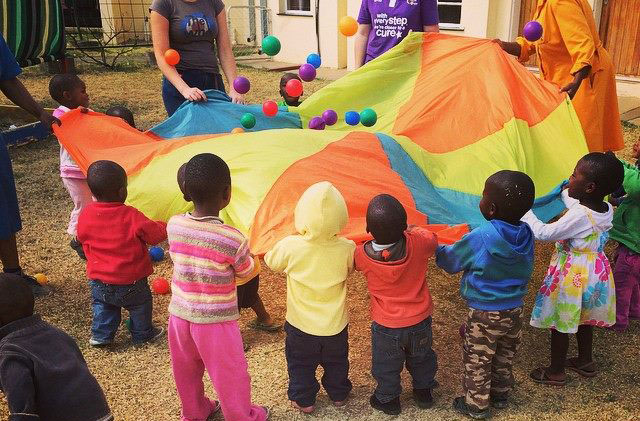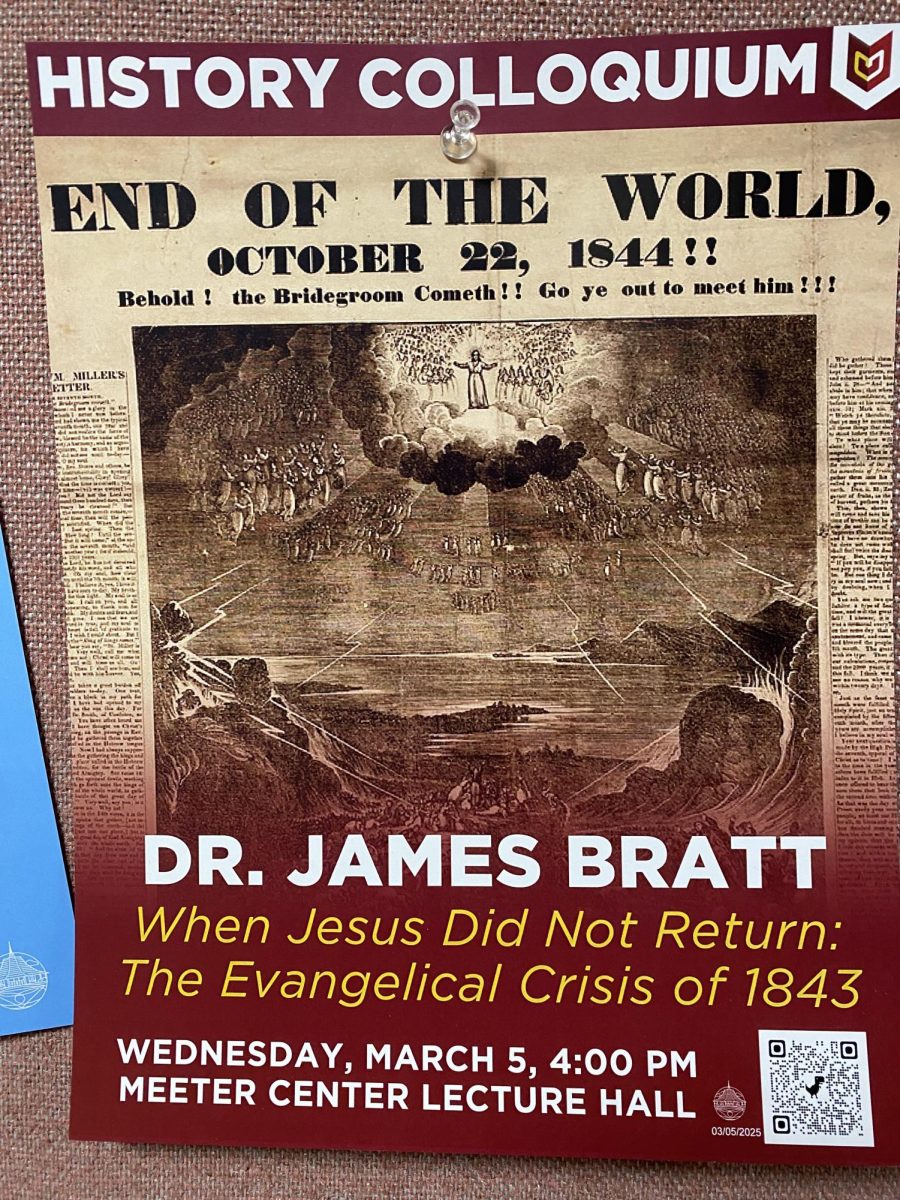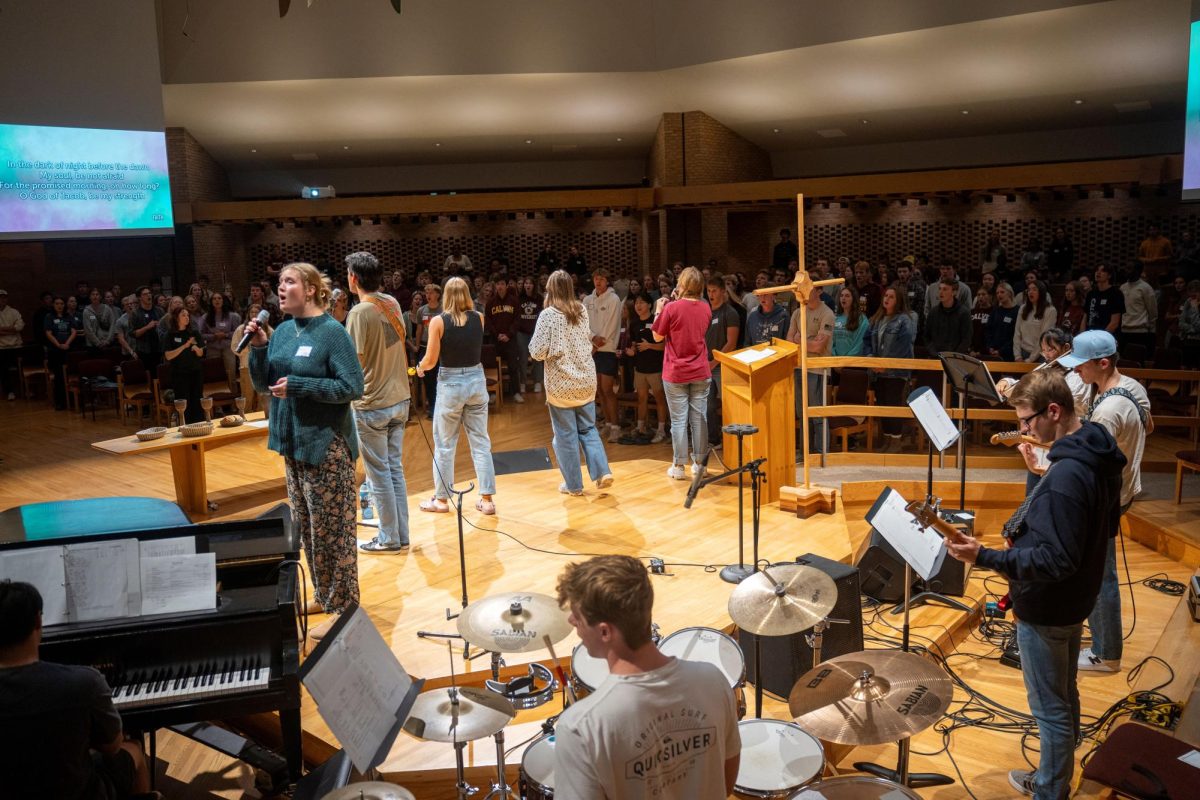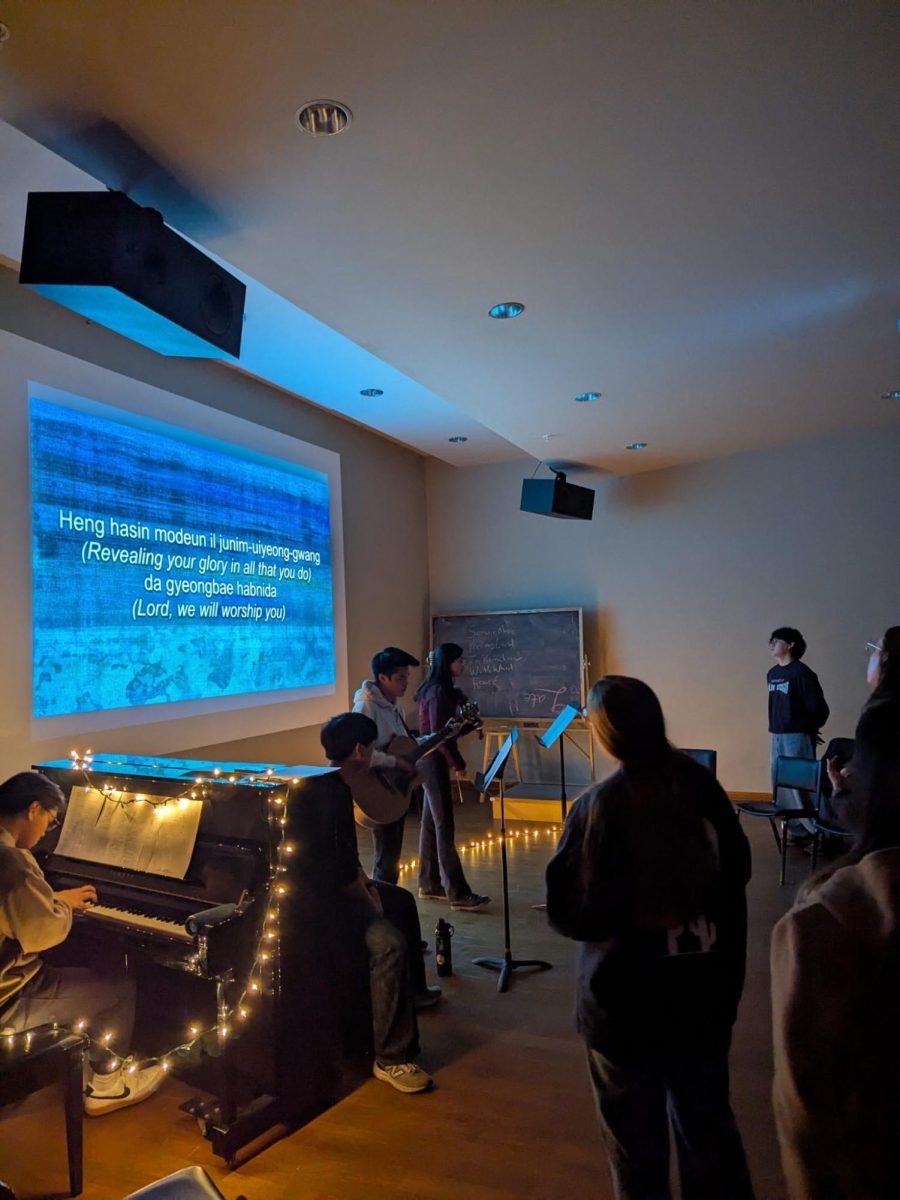“Whether you’re called to be a pastor, an organic farmer, a sociologist, a teacher — or just about anything — you’re an essential part of the life and work of God’s church.”
The statement comes from the Calvin congregational ministry studies (CMS) department’s statement about its calling as a department, but it applies to Calvin students from all different majors and backgrounds.
Four recent Calvin graduates, Tyler Robbert ‘14, Jeemin Lee ‘12, Dana Krol ‘14 and Sarah Stripp ‘14, credit their experience at Calvin with helping to lead them to ministry-related work. The grads also say that their homes — whether they be from California or Michigan — were important catalysts for their Christian faith.
For some, this familial faith-base led to an inclination early in life that vocational ministry was the path to walk. Lee said that from a young age, he “thought worship ministry would be the way to go.”
Lee is living out that early inclination toward ministry as the young adults and youth minister in a Roslyn Heights, New York reformed church community.
However, not every one of our grads felt the same certainty as Lee. Stripp, who currently holds multiple positions — from director of operations at Jackson, Mississippi’s Spencer Perkins Center and Common Ground Covenant Church, to the assistant to Dr. John Perkins — admitted that growing up she was regularly involved in church but “never anticipated working there.”
Similarly Krol, current sponsorship coordinator and communications specialist at the Esther School in Chongwe, Zambia, noted she was surprised by the vocational placement.
“Whenever I heard about missionaries I was always amazed… but never thought I would be one,” she said.
Besides their initial inclinations and upbringing, each graduate ascribed a large amount of influence to their experiences at Calvin. Robbert felt Calvin “helped [him] learn how to express [his] faith in the context of everyday life.” Robbert’s current station at Beautiful Gate Orphanage in Maseru, Lesotho, significantly benefits from this holistic perspective. Stripp, similarly influenced, attributes an understanding of her desires and gifts to the “professors and mentors who really walked [her] through” her calling to ministry.
But the road to ministry was not always an easy one. Struggles and questions shaped all of the graduates’ stories as well. Lee said that the challenges he faced during his four years at Calvin changed his life. He considered himself to be “on-top” of life, but “rejection letters, losing friends [and] failing classes” were agents by which Lee gained a deeper sense of God’s purposes and experienced Calvin’s community as a means of God’s mercy and grace.
“God really wanted me to trust and rely on Him,” said Lee.
Lee perceives God’s work in all things and strives to live in his experiences by remaining teachable. Stripp is reminded of God’s comprehensive work through her experience of incarnational ministry.
“Without living with the people you are ministering to, it is impossible to fully know their stories and actual needs,” she said.
Robbert summarizes his understanding of ministry as realizing “God doesn’t call us to be comfortable.” According to the CMS department homepage, whether this calling happens in the church or outside, it is important to realize you are called to be an indispensible member of Christ’s church.
As these graduates have discerned their current stations, they have affirmed that God speaks through a number of avenues: community, scripture, inclinations and opportunities. For Krol, its being “open to what God has put in your heart to do.” For Robbert, it’s being reminded that “where God calls, he provides.”








